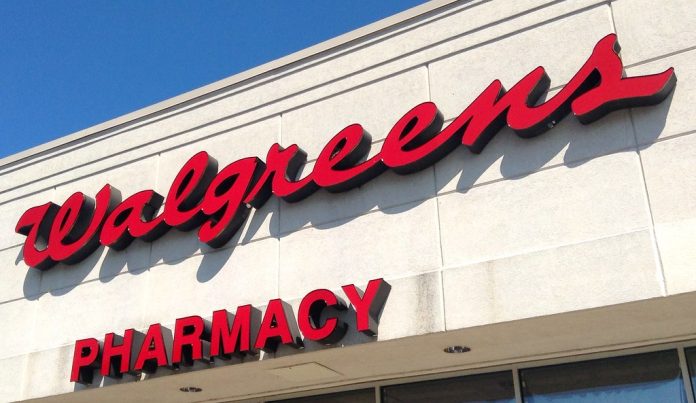Walgreens announces another store closing in a low-income area of Boston, as crime shutters hundreds of chain stores nationwide.
By Eileen Griffin
Retailers under siege and unable to remain profitable are closing stores in crime-infested neighborhoods.
Another Boston Walgreens is set to close at the end of January, CBS News reports. The Roxbury store, located in a predominantly black neighborhood, will discontinue services in that location leaving many residents without a pharmacy.
This Walgreens is the fourth one to be closing in the Boston area in just over a year, NBC reports. All the store closures around Boston are in low-income areas.
Residents rallied and protested the store closure frustrated with the loss. Many walk to the local store and do not have the means to get to a further location for services.
Retail stores have been closing in many Democrat-run cities as Heartland Daily News has previously reported.
Walmart closed four stores in Chicago earlier this year. Target closed nine stores in the Democrat-run states of Washington, Oregon, California, and New York. Philadelphia has lost numerous stores due to uncontrolled crime.
Businesses cannot continue to run at a loss. With the increased loss of revenue due to theft, many retailers are faced with the only option available when Leftist leaders impose soft-on-crime policies.
Drugstore chains have recently closed more than 1,000 locations throughout the country, Forbes reports. Walgreens, Rite-Aid, and CVS have announced the closing of 1,500 stores in two years. The locations high on the list for closure are in minority communities.
Research conducted in 2022 indicated that of the 670 pharmacy locations that closed, all but 3 were in predominantly minority neighborhoods.
The Roxbury store in Boston slated to close at the end of January is a neighborhood where 85.4 percent of the residents are black or Hispanic. The three Boston locations closed previously have a similar demographic make-up.
Explanations given for store closures include a change in the competitive landscape, population shift, staffing challenges, and rampant theft.
By the end of 2023, retailers lost $112.2 billion to shoplifting, the CapitalOne Shopping website reports. The same stores are projecting a loss of $140 billion for 2025. Losses due to shoplifting increased 19.4 percent year over year.
Shoplifters do not face punishment for their crimes as arrests are rarely made. A thief is arrested in only 1 out of 100 incidences of retail crime.
Organized crime rings have also impacted retail theft with over 70 percent of retailers reporting an increase in organized retail crime and criminal gangs. Many of these criminal gangs are comprised of teenagers. Juveniles aged 12-16 comprise the majority of shoplifters.
The state of Massachusetts lost $1.6 billion to retail theft.
The cities with the most retail crime are those with far-left leadership and progressive, soft-on-crime policies such as Chicago, New York, Seattle, and Los Angeles.
The National Retail Federation (NRF) declared October 26 as Fight Retail Crime Day in response to the growing epidemic. Thousands of retailers participated in a “national call to action” while lawmakers were petitioned to support legislative solutions to combat crime.
Thirty members of Congress participated in the event and several made public statements in support of retail businesses.
“Retail crime puts employees and customers at constant risk for their mental and physical well-being,” said U.S. Sen. Mike Crappo (R-ID) on X.
“Organized retail crime is on the rise, putting employees, customers, and small businesses at risk,” said U.S. Rep. Doug LaMalfa (R-CA) on X. “We should be haunted by the violent smash-and-grabs happening in San Francisco. On #FightRetailCrimeDay I met with @NRFnews to discuss ways to dismantle these violent networks.”
“In my district, we see another business victimized nearly every week,” U.S. Rep. Young Kim (R-CA) said on X. “I’m honored to be named a Retail Crime Fighter. I’m leading a bill to address organized retail crime and fighting to support entrepreneurs and keep communities safe.”
Opponents of curtailing retail theft and punishment often claim the need for compassion toward the perpetrators of crime.
“Compassion for criminals is cruelty to the community,” wrote Matt Walsh for The Daily Wire. “This is the choice. Either punish the guilty or punish the innocent. You must choose one. To refuse the first option is to choose the second. It’s that simple.”
“For right now, the woke justice policies allowing crime to run rampant must be tossed out along with the leaders who implemented such rules. It is abundantly clear they have failed,” wrote Tim Meads for The Daily Wire.






